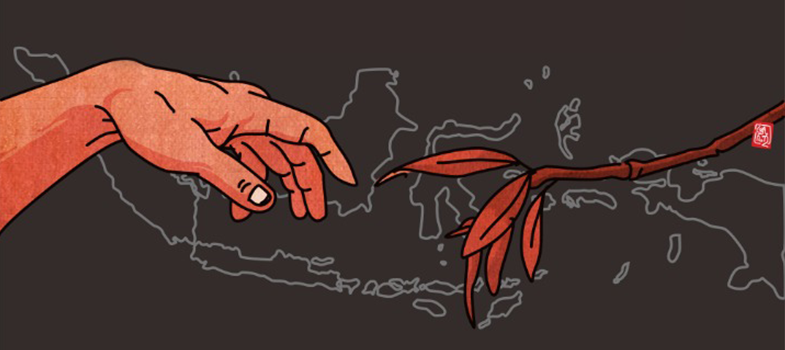Varieties of Religion and Ecology in Indonesia – Book Launching
 Religion and ecology is a thriving field of study in religious studies. Along with the the emergence of awareness of a global environmental crisis, starting in 1960s works on religion and ecology developed in a variety of disciplines as well as religious and scholarly communities. The growing field is indicated by production of many academic literature, including specialist journals on the subject, but also by its engagement with secular or religious environmentalism.
Religion and ecology is a thriving field of study in religious studies. Along with the the emergence of awareness of a global environmental crisis, starting in 1960s works on religion and ecology developed in a variety of disciplines as well as religious and scholarly communities. The growing field is indicated by production of many academic literature, including specialist journals on the subject, but also by its engagement with secular or religious environmentalism.
The recently published book Varieties of Religion and Ecology: Dispatches from Indonesia, edited by ICRS Director Zainal A. Bagir, Professor Michael S. Northcott (Edinburgh University and ICRS) and Frans WIjsen (Radboud University) contributes to this growing field. The idea to publish articles in this field, emerged for the first time at a workshop, held by the Pokja (working group) of the Netherlands-Indonesia Consortium for Muslim-Christian Relations (NICMCR) in 2019. Bagir and Northcott have been co-teaching a class on Religion and Ecology offered to the MA students of the Center for Religious and Cross-cultural Studies, Universitas Gadjah Mada and doctoral students of ICRS. Bagir and Wijsen are members of the Steering Committee of NICMCR, which co-sponsors the publication.
The chapters, based on empirical research in different locations as well as varied religious communities in Indonesia, presents many facets of religion and ecology. Many of the chapters were written originally as Master’s theses at CRCS. Commenting on the book, Anna Gade, Professor of Environmental Studies at the Nelson Institute for Environmental Studies, University of Wisconsin—Madison, and the author of Muslim Environmentalisms (Columbia, 2019) writes:
“This collection presents critical environmental problems with respect to their intersection with culture and religion in Indonesia, such as water resource management, conservation, and political ecology. Scholars from the region ground investigation in ethnographic field studies that represent diverse communities, including Indigenous perspectives from across the archipelago. The discussion is forward-looking and sophisticated, offering a meaningful and critical engagement with the field of religion and ecology.”
The book will be launched on zoom on July 16, 2 PM WIB/9 AM CEST. Zoom link
Full information, please click Table of Contents and Introduction, bookcover and flyer
